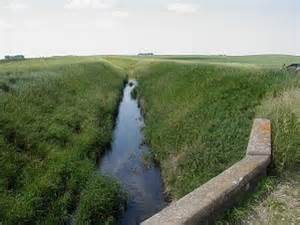Army Corps Handed Court Defeat Even as More States Challenge New Rule
Army Corps Handed Court Defeat Even as More States Challenge New Rule
Jurisdictional Determination IS a “Final Agency Action” that can be challenged in court
On Sept. 8th, the Obama administration asked the Supreme Court to review the Eight Circuit’s decision in Hawkes v. Corps. In Hawkes, a landowner sought a jurisdictional determination from the U.S. Army Corps (“Corps”) to mine peat moss from 530-acres of land. The Corps issued a jurisdictional determination that the property contained wetlands subject to Clean Water Act Section 404 permitting requirements. The Eight Circuit concluded that a jurisdictional determination by the Corps is a “final agency action” that may be challenged under the Administrative Procedure Act (“APA”). The Hawkes decision departs from an earlier Fifth Circuit decision in Belle Co. LLC v. Corps, where the court held that a jurisdictional determination does not constitute a final agency action under the APA, and thus is not subject to judicial review.
The Eight Circuit’s decision in Hawkes relied on a previous Supreme Court case, Sackett v. EPA, where it was determined that EPA compliance orders could be challenged in court. In the petition to the Supreme Court for review of Hawkes, Solicitor General Donald Verrilli stated that theEight Circuit decision is “incorrect,” and that jurisdictional determinations do not amount to a final agency action because they do not have the same legal and financial implications on landowners as EPA compliance orders. In response to Verrilli, property rights proponents have pointed out that jurisdictional determinations by the Corps can set into motion the costly permitting process and require a landowner to reconfigure the proposed project.
Texas, Louisiana, and Mississippi Join the Fight
The circuit court split over whether a jurisdictional determination amounts to a judicially challengeable, final agency action is an even more important question in light of the recently revised definition of “waters of the United States” under the Clean Water Act (referred to as the Clean Water Rule). On Aug. 28th, the Clean Water Rule went into effect. A few hours prior to the new rule becoming effective, District Judge Ralph Erickson granted an injunction applicable to 13 states.
Now, the Attorneys General for Texas, Louisiana, and Mississippi are requesting a preliminary injunction to cover them, arguing that the Clean Water Rule impacts the states’ sovereignty over their lands. Similar injunction requests by Oklahoma, Georgia, and West Virginia have been denied by federal district court judges.


